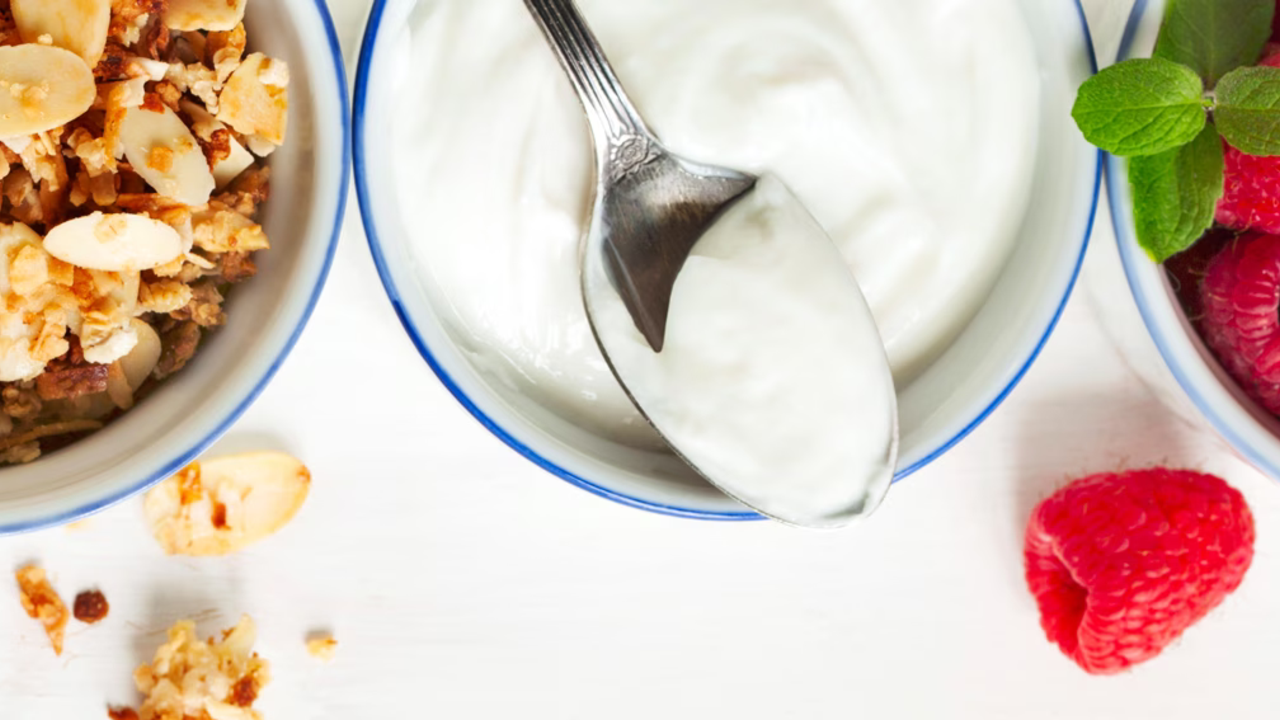

Knowing what to eat in autumn can help us combat all the symptoms that seasonal changes can bring.
Melancholy, physical and mental fatigue, drowsiness, or, on the contrary, insomnia and difficulty concentrating: variations in daylight hours and temperatures and reduced exposure to sunlight can indeed influence the production of certain neurotransmitters that affect mood, hunger, and sleep.
To combat the minor discomforts that follow, it can be of great help to make the right choices when it comes to what you put on your plate.
So, here’s what to eat in autumn and the tips to follow to feel full of energy during this seasonal change.
What to Eat in Autumn: 4 Combos to Counter the Seasonal Change
Yogurt and Cereals to Counter Mood Swings
This mix, ideal for breakfast or a snack, ensures beneficial bacteria and prebiotic fibers that promote their proliferation.
The advantage? It protects the gut, which plays a key role in the overall health of the body and the production of feel-good hormones like serotonin.
It also helps you feel more energized. This combination is indeed a good source of tryptophan (an essential amino acid which plays a major role when ensuring your gut is healthy).
Finally, whole grains provide complex carbohydrates that provide long-lasting energy.
Fatty Fish and Olive Oil to Beat Drowsiness
Less exposure to the sun in autumn affects the production of melatonin, a hormone that regulates the sleep-wake cycle, causing difficulty falling asleep, nighttime awakenings, and daytime drowsiness.
At the table, don’t miss foods rich in essential fatty acids that facilitate the secretion of serotonin and melatonin.
Good sources of these are fish, especially fatty fish (anchovies, sardines, mackerel, herring).
Ideally, season it with extra virgin olive oil, rich in healthy fats that help you have long-lasting and high-quality sleep.
Spinach and Lemon to Overcome Fatigue
Spinach is a source of minerals useful for countering the feeling of fatigue that is frequent during seasonal changes. They provide, in particular, iron, potassium, magnesium, and calcium.
To enhance its virtue, add a squeeze of lemon to your spinach.
The vitamin C it’s rich in facilitates the absorption of calcium and iron and helps keep the typical sense of tiredness of the seasonal change at bay.
Chicken and Rice to Combat Melancholy
Do shorter days make you feel demotivated? In your daily menus, say yes to foods that are a source of tyrosine, such as lean turkey and chicken meat, to be combined with foods rich in B vitamins such as whole rice and vegetables.
Tyrosine is an amino acid precursor to dopamine, adrenaline, and noradrenaline, hormones that help you feel more energized. B-group vitamins facilitate their production.
**Why Feeling Sad in Fall is Normal**
This article first appeared on grazia.it — Author: Angela Altomare













